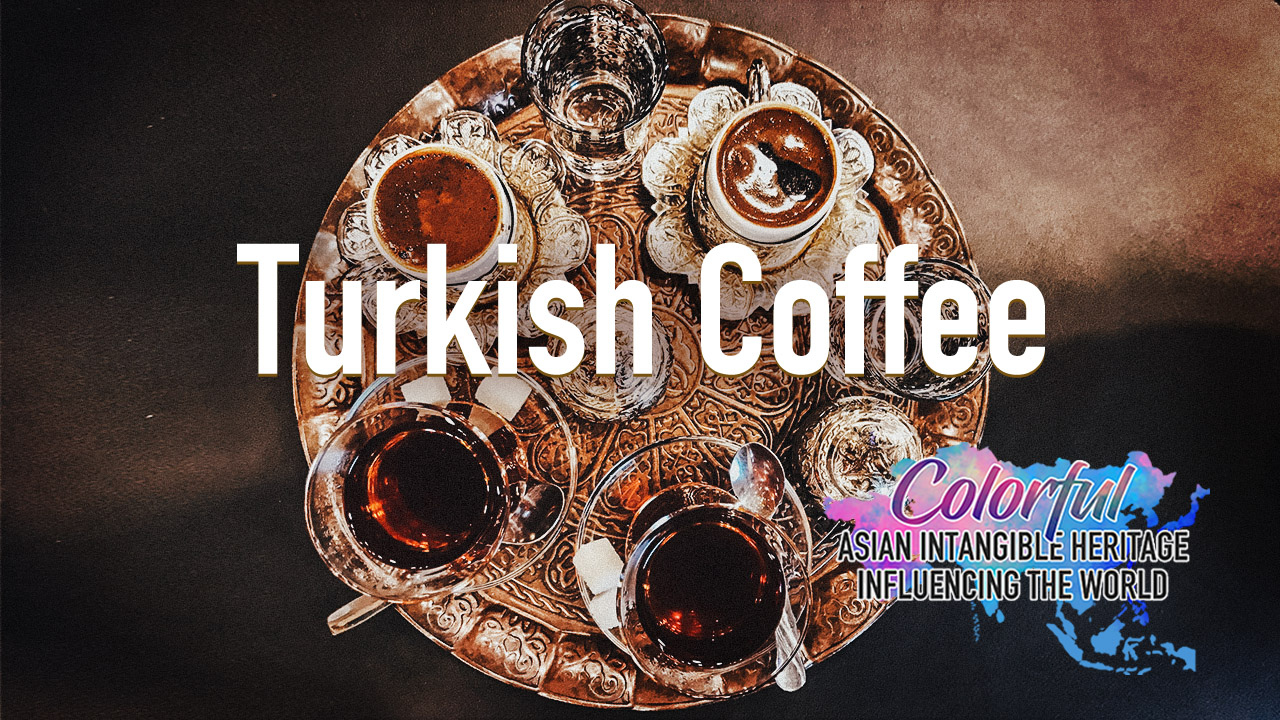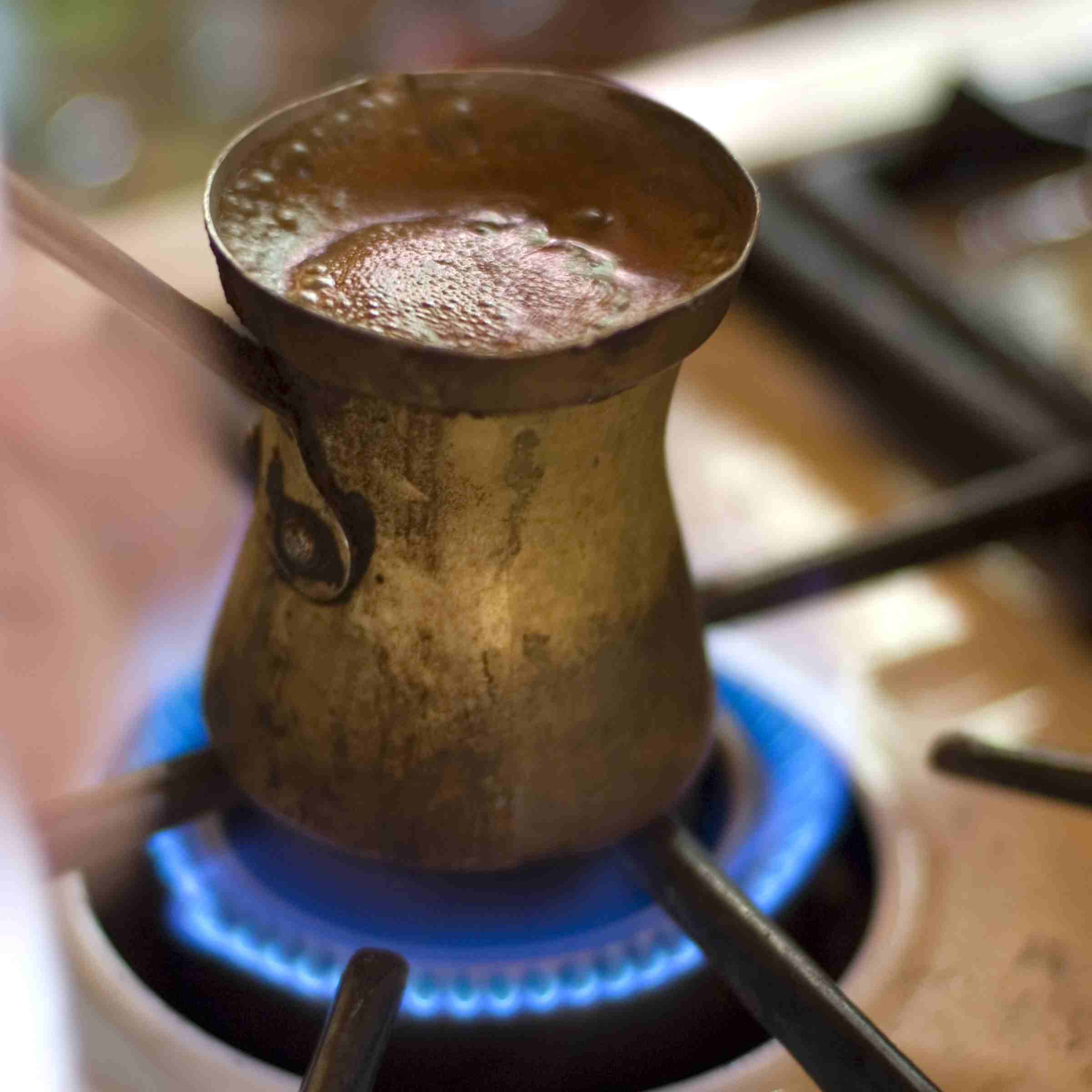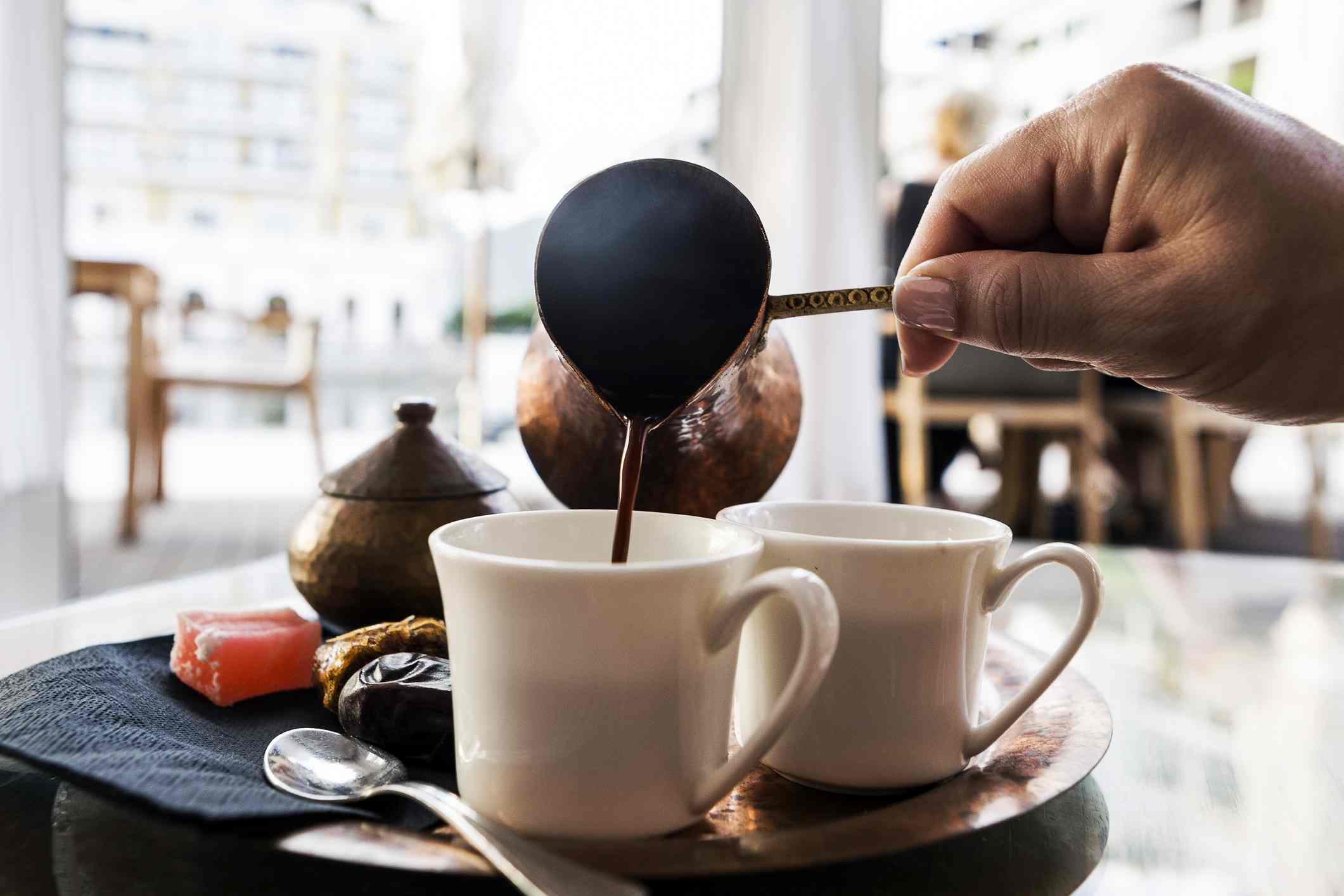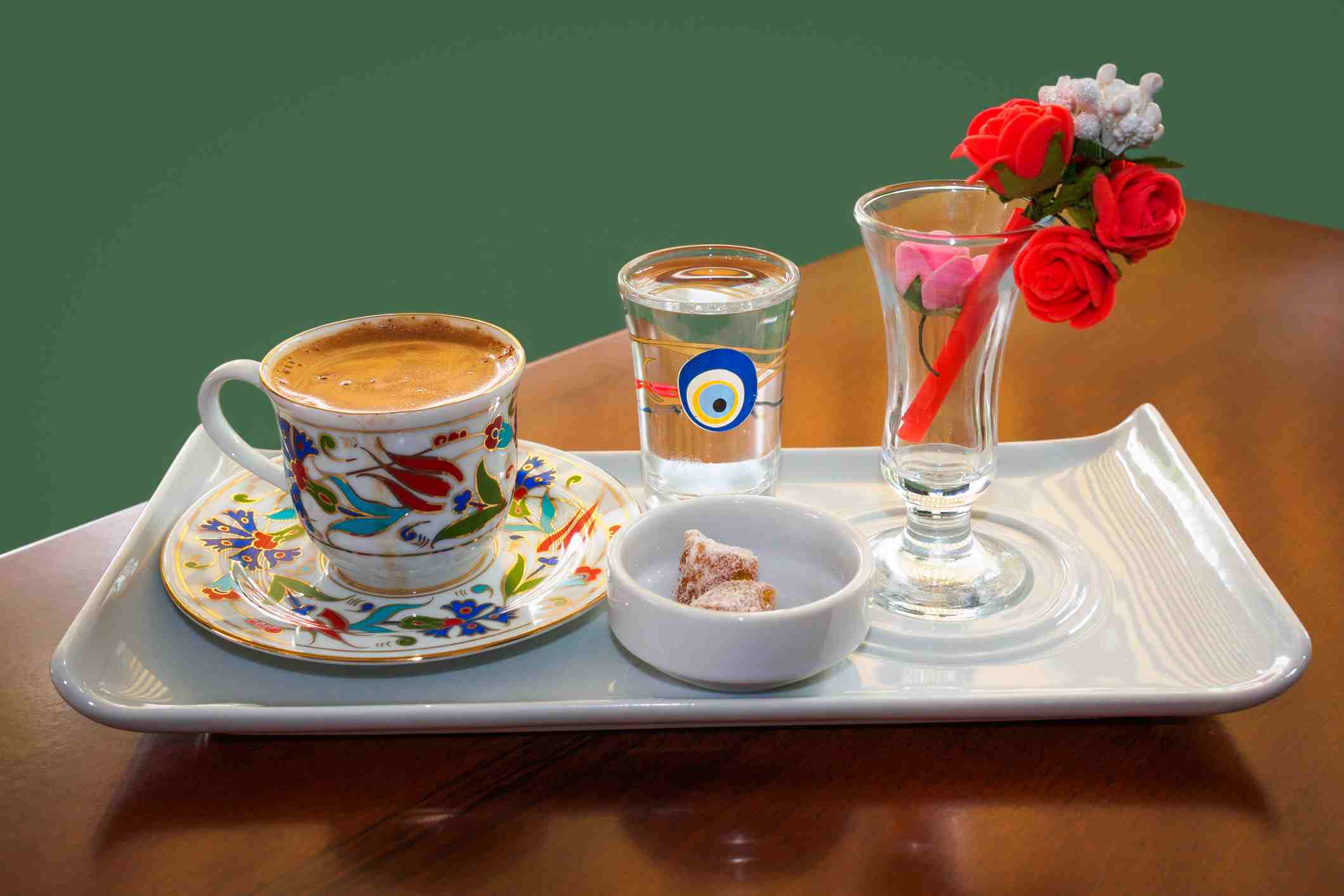
Culture
10:51, 11-May-2019
Turkish Coffee: A drink, a fortune-telling tool, a prenuptial test
By Jiang Qingrui
02:21

First introduced to the Ottoman Empire in the 15th century, coffee became an important court ritual in the 17th century. This kind of coffee was then introduced to other European countries like the UK and France and is considered the origin of European coffee.
Beside its time-honored history, it also has unique and rich cultural implications.
Finely ground coffee and a special brewing technique
Turkish coffee is made of finely ground powder produced by a manual grinder. Usually, two teaspoons of coffee powder are used per cup.

A Turkish style coffee bean grinder. /VCG Photo
A Turkish style coffee bean grinder. /VCG Photo
Compared with other kinds of coffee in the world, Turkish coffee doesn't require any milk, cream, or coffee mate, and the grounds also remain in the cup when served, so it has a bitter taste.
In Turkey, the ground coffee is boiled in a "cezve", a small pot with a long handle.
The skill in the brewing process lies in producing as much foam as possible. Usually when the coffee is just about to boil, the pot is removed from the stove in two or three repeated motions to increase the amount of foam. Sometimes a third of the coffee will be served immediately, with the rest reheated for later use.

Turkish coffee in a cezve being heated. /VCG Photo
Turkish coffee in a cezve being heated. /VCG Photo
Sugar is generally not added at the table, but during the boiling process, and done according to taste. Some people may, of course, prefer unsweetened coffee.
A glass of water is traditionally served alongside.
A fortune-telling tool
The grounds remain at the bottom of each cup of coffee, and so, when drunk, reveal random and unique patterns that cup readers use to foretell the future of the coffee drinkers.
The fortune-telling process is like this: When the coffee is finished and the grounds appear, put the saucer on top of the cup. Then turn it clockwise three times while making a wish, before turning it upside down on the table.

Turkish coffee served in two cups. /VCG Photo
Turkish coffee served in two cups. /VCG Photo
Then put a personal item at the bottom of the cup. The item may be a ring or a coin; a ring represents fortune in relationships or emotional experiences, while a coin concerns professional or money issues. Let the remains cool down a bit, then remove the item and observe the shapes and patterns inside the cup.
Fortune tellers may also talk to the customers ahead of the coffee drinking session to learn more about them and their experiences before revealing their predictions.
A prenuptial test
Turkish coffee-making skills are regarded traditionally as an important indicator of a woman's virtue. When a potential husband meets the girl's family regarding marriage arrangements, he may judge the bride-to-be from the coffee she serves.

Turkish coffee served with a glass of water. /VCG Photo
Turkish coffee served with a glass of water. /VCG Photo
But it doesn't mean this coffee is all about patriarchy. The bride can also put salt into the coffee instead of sugar, as a way to test the temper of her husband-to-be. If he drinks it without showing anger, he is regarded as being temperate and patient.
Turkish coffee is drunk daily in many countries in the Middle East and southeastern Europe. It is a good way for friends and family to catch up and chat.
"Turkish Coffee Culture and Tradition" was inscribed on UNESCO's list of Intangible Cultural Heritage of Humanity in 2013.
Video Editor: Wang Baozhu
Designer: Fan Chenxiao
Special effect: Pan Yufei
Producer: Wen Yaru
Chief editor: Lin Dongwei
Supervisor: Pang Xinhua

SITEMAP
Copyright © 2018 CGTN. Beijing ICP prepared NO.16065310-3
Copyright © 2018 CGTN. Beijing ICP prepared NO.16065310-3